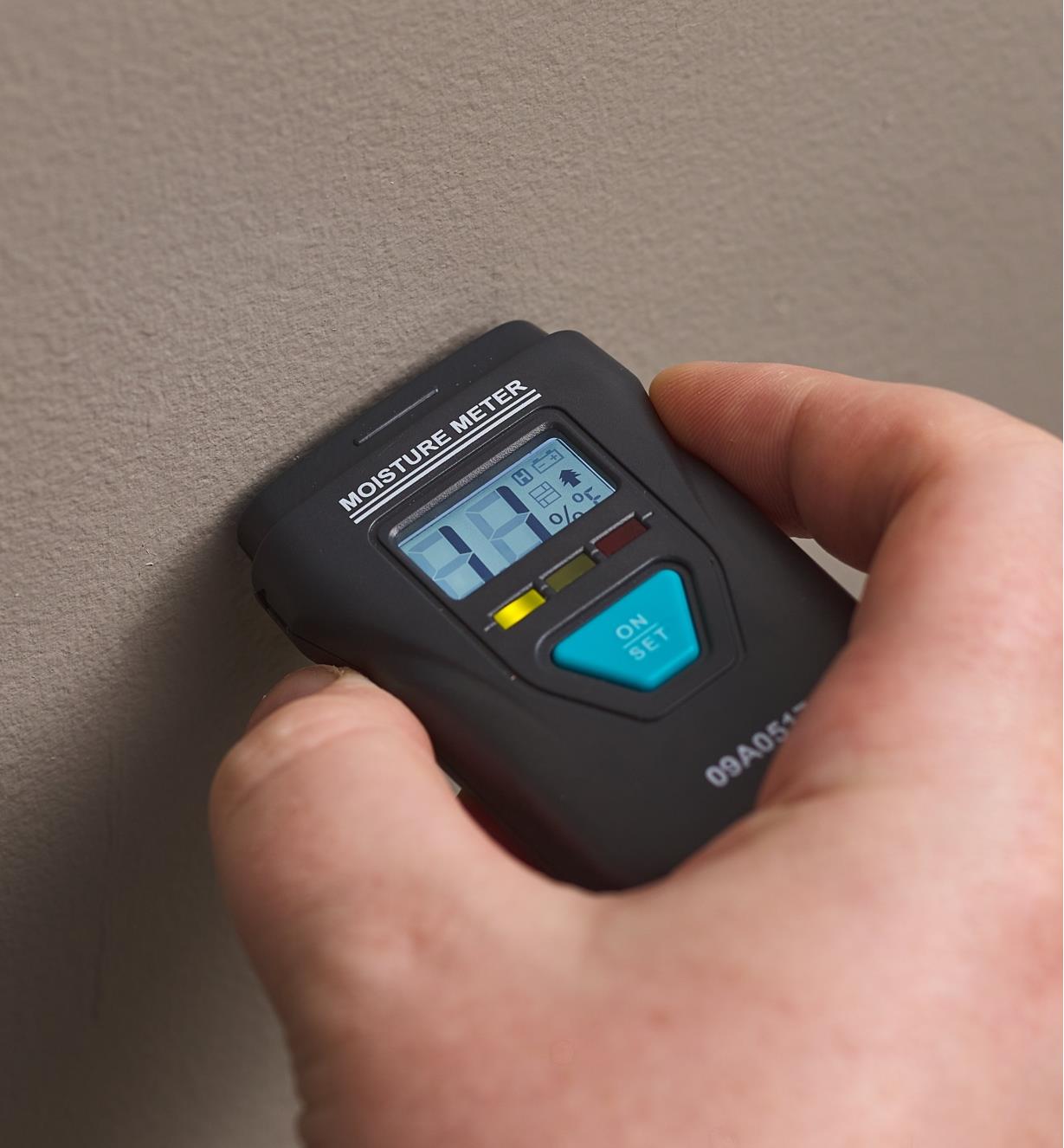How to Use a Moisture Meter to Spot Covert Water Damage in Your Residential property
How to Use a Moisture Meter to Spot Covert Water Damage in Your Residential property
Blog Article
The Ultimate Overview to Dampness Meters: A Comprehensive Review and Exactly How They Can Save You Money
In the world of building upkeep, building and construction, and numerous markets, the importance of accurately gauging wetness levels can not be overemphasized. Wetness meters work as crucial devices in discovering and checking moisture material in materials, helping in stopping costly problems and guaranteeing the quality of items. Understanding the subtleties of various kinds of dampness meters, their applications, and the potential cost-saving benefits they offer can be a game-changer for organizations and specialists alike. Finding just how these devices can not just streamline procedures but likewise contribute to monetary cost savings is a trip worth embarking on.
Sorts Of Moisture Meters
Different sorts of dampness meters are available for various applications in various sectors. One common type is the pin-type wetness meter, which measures the electrical resistance between two pins placed into a material. This kind appropriates for wood, drywall, and various other structure products. Pinless wetness meters, on the various other hand, usage electromagnetic sensing unit plates to check a bigger location without creating damages to the product's surface. Moisture Meter. These meters are ideal for quickly examining wetness degrees in huge locations such as wall surfaces and floors.

Additionally, there are additionally specialized dampness meters developed for particular materials like dirt, hay, or grain. These meters give precise moisture analyses tailored to the special residential or commercial properties of the material being checked. Infrared moisture meters gauge the thermal residential properties of a material to identify its wetness web content non-invasively, making them beneficial for applications where pin or pinless meters may not be ideal. Comprehending the various sorts of dampness meters available can aid industries select the most appropriate device for their specific dampness measurement requirements.

Benefits of Using Wetness Meters
Wetness meters supply vital benefits in accurately keeping track of and analyzing moisture degrees in varied materials and environments (Moisture Meter). One of the key advantages of using moisture meters is the prevention of possible damages triggered by excess moisture. By discovering and resolving high dampness levels early on, moisture meters help to stop mold and mildew development, rot, and architectural damages in buildings, saving both money and time on fixings. In addition, moisture meters aid in making sure the high quality of products throughout building or production procedures. By properly gauging dampness material, these tools assist preserve the stability of wood, drywall, concrete, and other materials, decreasing the danger of problems or failures.
Additionally, making use of moisture meters can lead to raised energy performance. In agricultural setups, dampness meters play an important duty in enhancing plant yields by allowing farmers to monitor soil wetness levels and make notified irrigation choices.
How to Select the Right Dampness Meter
When choosing a dampness meter, it's necessary to make sure that the meter is appropriate for the specific product you will certainly be testing. Various products have differing electrical residential properties that can impact wetness analyses, so choosing a meter developed for your product is essential for accurate outcomes. By very carefully assessing these variables, you image source can select a moisture meter that fulfills your needs and provides precise moisture dimensions for your projects.
Correct Methods for Dampness Meter Usage

Cost Savings Through Moisture Meter Applications
Exactly how can the strategic usage of moisture meters lead to substantial expense financial savings across various industries? In the farming market, moisture meters help in determining the optimum time for harvesting plants, avoiding over-drying or excess dampness that can impact the last product's high quality.
Similarly, in building and construction, moisture meters assist stop pricey damages by spotting dampness levels in building products, such as wood or concrete, which can cause architectural concerns if not attended to promptly. By determining trouble areas early, contractors can take restorative actions to stay clear of comprehensive fixings or replacements, eventually conserving money and time.
Additionally, in the food handling market, dampness meters are important for keeping an eye on item quality and ensuring compliance with security laws. By properly determining wetness material in foodstuff, suppliers can prevent putridity, preserve quality, and lower waste, resulting look at this site in considerable expense savings. Generally, the critical application of dampness meters is a beneficial financial investment that can lead find this to substantial expense reductions and enhanced effectiveness across various industries.
Conclusion
In conclusion, moisture meters are useful devices for detecting and determining moisture degrees in various products. By using the right wetness meter and following correct strategies, individuals can effectively protect against costly problems caused by excess wetness.
Moisture meters offer as crucial tools in detecting and checking moisture content in products, assisting in avoiding pricey damages and making sure the top quality of products. Infrared dampness meters measure the thermal homes of a product to determine its wetness web content non-invasively, making them useful for applications where pin or pinless meters might not be appropriate.Wetness meters supply indispensable benefits in properly evaluating and keeping an eye on wetness degrees in diverse products and environments. In agricultural settings, wetness meters play a critical role in enhancing plant returns by making it possible for farmers to monitor soil moisture levels and make informed irrigation choices.In verdict, moisture meters are valuable tools for discovering and determining dampness levels in different products.
Report this page